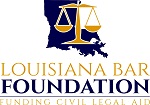Here is little information on a major federal funding source for organizations that serve victims of crime and why volunteering, donating goods and services, and giving are so important in efforts to serve victims.
Victims of crime should not be ignored… and donations — cash, goods, volunteer time — are very much needed, not just for program participants, but also for matching federal grants.
This year, there is a significant, temporary, increase in Victims of Crime Assistance (VOCA) funding. VOCA funds provide funding for all sorts of programs that provide services for crime victims. Often, these are the primary funds for the delivery of such services. Funding is allocated to states that, in turn, distribute these funds, through a proposal and granting process, to communities throughout the state.
When there are increases in funding, new services and projects can be developed and implemented to support victims. Services for children to help them build hope as they recover from trauma; outreach to rural communities, where, often, abuse is swept under the rug; services to survivors of sexual assaults to help them through the toughest time in their lives.
By law, VOCA funding must be matched with cash (donated money, private foundation grants, etc.) or in-kind (volunteer services, goods donations, etc.) in the amount of 20% of the federal funds awarded.
So, with the opportunity to support new innovations comes an obligation to raise additional funds and support to meet match requirements.
With other funding that agencies obtain that require matching funds (and you can’t use the same private dollar amounts, volunteer services, or donated goods for more than one project), an organization has to consider match when going for any extra available funds, or pass on the opportunity, which means not implementing new and much-needed services.
At the end of the day, if the match amounts required are not completely met, cash has to be found to meet the unmet portion of the obligation, which could be taken out of final reimbursements, etc., which negatively impacts small (and large) organizations.
The Office for Victims of Crime (OVC), a part of the U.S. Department of Justice, oversees VOCA funding and can provide waivers at its sole discretion… but, often, organizations accept VOCA funds with hopes for these waivers that are never guaranteed.
So, with that, remember that donations — cash, goods, and volunteer hours — are worth so much to agencies that serve victims of crime, especially when they receive VOCA funds to support services.
Contact your local domestic violence agencies, sexual assault counseling providers, and other organizations that serve human survivors/victims. See what they need and help where you can.
Volunteer time is just as valuable as cash; food and clothing can do more than just clothe and feed a victim in need; it can all be valued and counted toward fulfilling match; and, of course, cash donations count, too.
You can also contact your U.S. senators and representatives and ask them to intercede on behalf of VOCA-funded victim services providers in your area, where match waivers are concerned, if a need exists. Every bit of advocacy helps, too.





